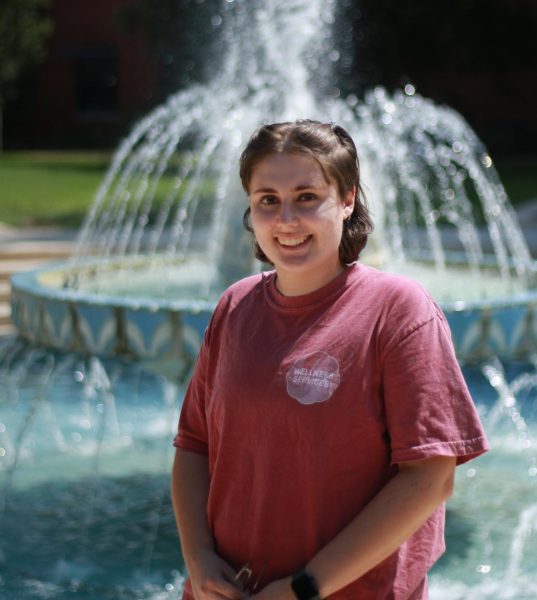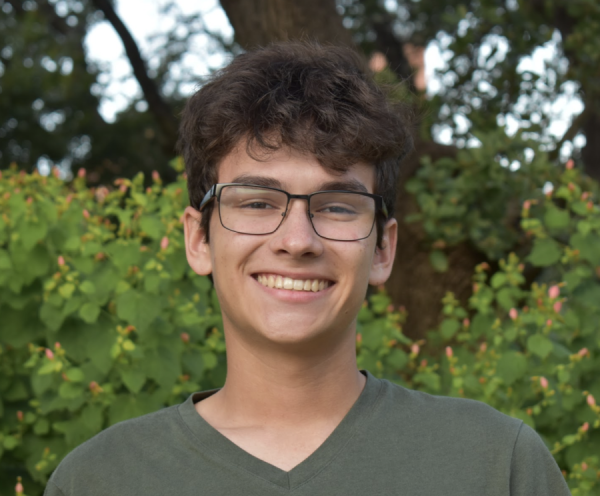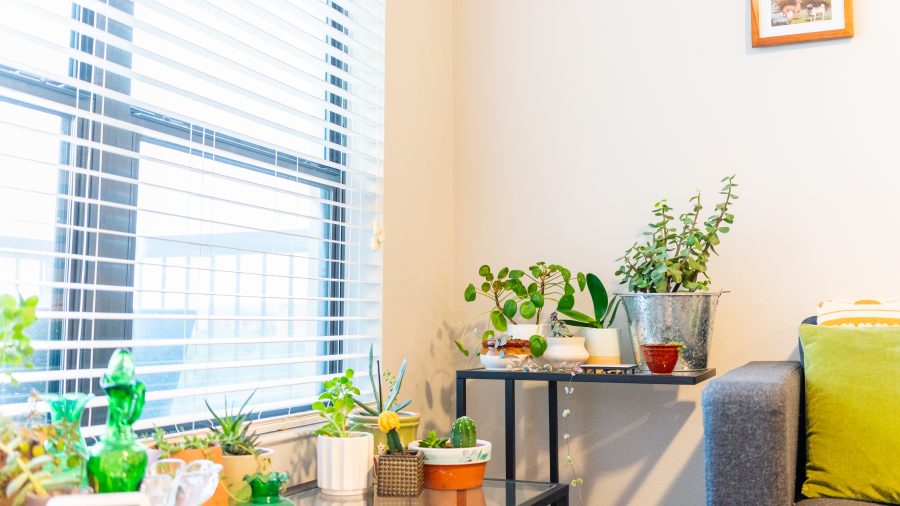Plant parents show off their greenery
Navigating Trinity’s dorm room jungles and lusciousness in campus green spaces
Aubrey Featherston’s plants
Plants can ground us, remind us of our humanity and do a great job making our dorms less ugly. College students generally don’t have the space or the time to keep plants, but some Trinity students are able to keep their green thumb alive.
Blaine Martin, sophomore political science and international studies double-major with a Spanish minor, grew up watching his grandmother tend to her greenhouse and gift plants or clippings to her friends and family. For Martin, plants can help us show our love and connect with others.
“You would think that growing plants and everything would just be an isolated thing, but she used to say, ‘Well, you’re going to do this in your own free time and use that free time to make others happy,’” Martin said.
Martin has over 100 plants between his dorm and his house, and he also spearheaded the Coates Library Patio beautification project. For help planning and funding the project, he reached out to the Student Government Association, the Coates Library staff, Eco Allies and the nonprofit organization Gardopia.
“It’s supposed to be a nice meditative space for people either to go out there and just be with themselves or people can have events out there, like different clubs and organizations and just be a nice place to just chill,” Martin said. “Envision it being a place for admissions to bring students to take pictures and stuff. Lots of flowers, vines and other plants.”
The project is still in the early planning phase, with just a few test plants on the patio currently. Martin will be studying abroad for the duration of the 23-24 school year, and plans to make the project sustainable by relying on off-campus and on-campus organizations.
“I really hope that people enjoy this space. I hope that they appreciate its value upon completion because I will not be here next year. I really hope that people acknowledge the project after I am gone,” Martin said.
Aubrey Featherston, junior environmental studies major, grew up gardening with her parents and has always been surrounded by plants. Featherston has begun an Eco Allies subcommittee called EcoReads, a book club focusing on the natural world. This group is open to current students and alumni and plans to be able to give members free copies of books provided by Trinity University Press.
“I’m hoping having a club to go to and having a reason to do it will get people more engaged in reading and more engaged with the environment. And for the book and plant lovers, I hope it’s a good place where we can combine those passions,” Featherston said.
Featherston has approximately a dozen plants in her City Vista apartment. While she has always had some plants at home, she began starting a much larger collection when she arrived at Trinity.
“When I came to college, I felt that lack of having something to nurture, and I needed something to take care of, as a way to remind myself to take of myself. And so I got one in class one day, and it makes me so unbelievably happy to have this thing, growing and thriving in the same space I am. I am in parallel with this thing, thinking if it is growing and thriving then I can too,” Featherston said.
While inviting plants into our lives can benefit our well-being and bring us closer together, it can also be expensive. Dana Sheehan, junior chemistry major, tackles this issue by taking clippings of plants and propagating them. Water propagation is a technique where a plant clipping is put into water and allowed several weeks to grow roots before being replanted in soil.
“I’ll go to Home Depot, and I’ll go around to the succulents specifically, where they have all of the fallen leaves, and I’ll just pick them all up and put them in a bag and then leave. And then I’ll turn those into plants,” Sheehan said.
Thrifting pots and getting clippings instead of buying new plants are additional ways to make being a plant parent more affordable and sustainable. Sheehan first became a plant parent in her dorm room during the COVID-19 pandemic.
“I go to college and it hit me that [my dorm] is just a square box. I have a sheet on my bed, and this was COVID so no roommates, and I needed something, so I got a cactus,” Sheehan said.

Hi! I am a junior sociology major with a double minor in gender studies and psychology. The themes for the special editions revolve around holidays and...

My name is Sam (he/him) and I'm a photographer here with the Trinitonian. I'm a senior Communications and German double major from Austin, Texas, and...



